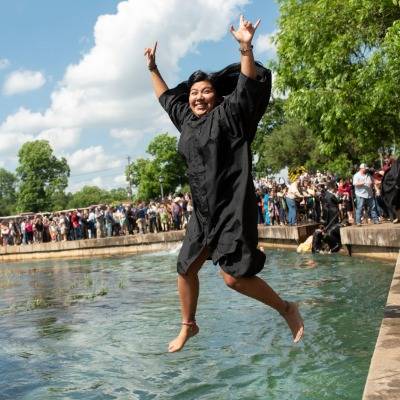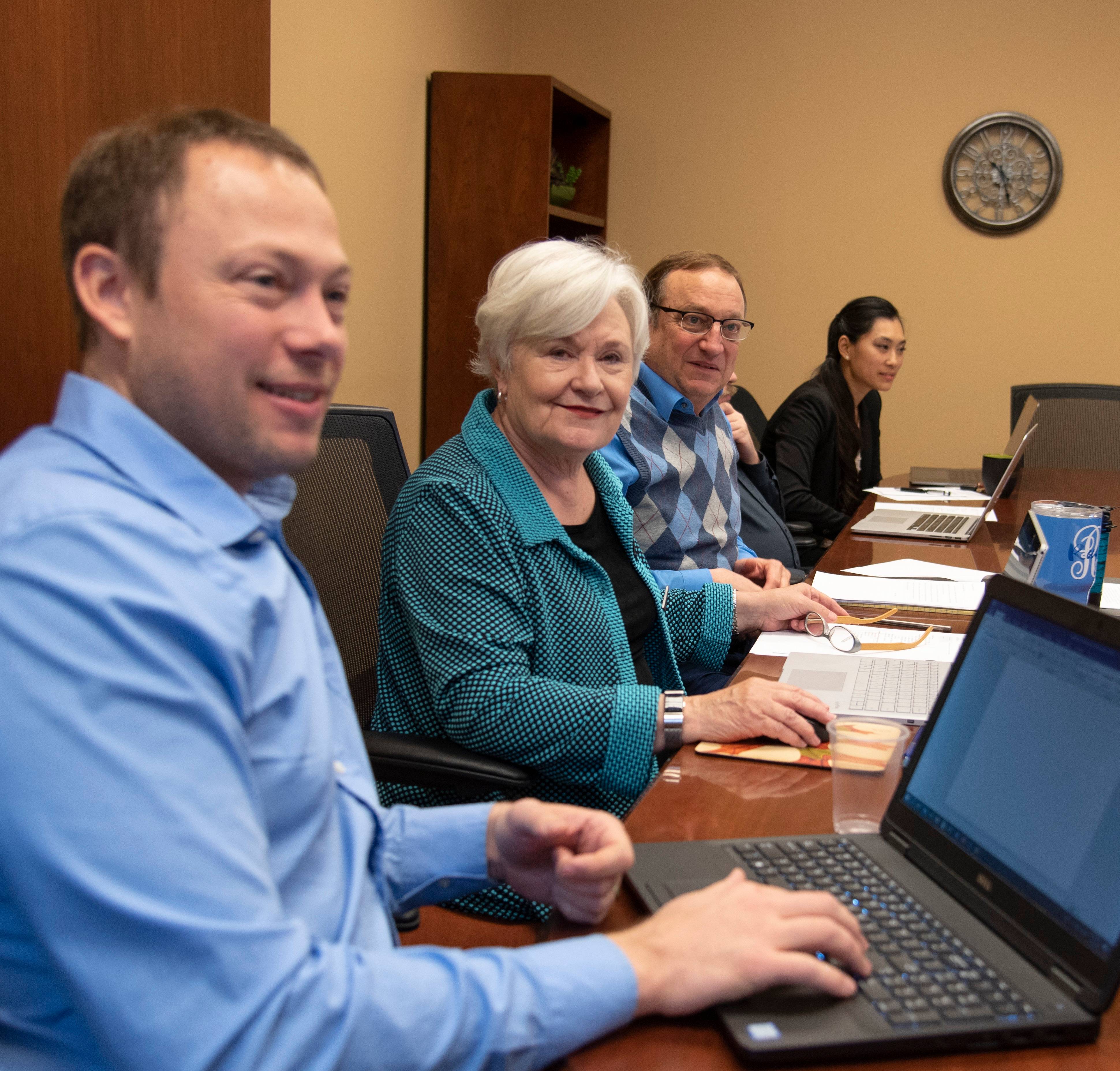Master's Program in Postsecondary Student Success in Learning, Literacy, and Mathematics
The Department of Curriculum and Instruction at Texas State University offers a Master of Arts degree in Postsecondary Student Success in Learning, Literacy, and Mathematics (formally Developmental Education) that prepares future educators, leaders, program developers, and administrators to enhance the learning and educational experiences of postsecondary students in a variety of contexts. The department is committed to offering a robust experience in which students learn to think critically about theory, research, and practice in multiple areas of postsecondary student success. As a multidisciplinary program, with concentrations in developmental mathematics, learning support, and literacy, the faculty, staff, and students work collaboratively across various academic disciplines, diverse communities, and geographic boundaries.
-
Welcome
Welcome to the official website of the Master of Arts Program in Postsecondary Student Success in Learning, Literacy, and Mathematics. We appreciate your interest in our program and the field of postsecondary student success research, policy, and practice. Our Graduate Program offers M.A., Ed.D., and Ph.D. degrees. We also offer a graduate minor. This website is specific to our Master of Arts Program and Graduate Minor.
This website contains detailed information for current and prospective students. As you explore our degree plans and funding opportunities, we also hope you will become more familiar with our community of graduate students, staff, and faculty, and the research and educational initiatives in which we are involved.
Should you have any questions or need more information, please contact me directly.
Sincerely,
Taylor W. Acee, Ph.D.
Professor and Doctoral Program Coordinator
Email: ta19@txstate.edu
Office Phone: 512.245.7903
-
What is Postsecondary Student Success?
Postsecondary Student Success is an area of research, policy, and practice focused on understanding, generating scholarly knowledge about, and equitably improving student experiences and outcomes in 2-year and 4-year colleges, universities, certificate programs, vocational and technical schools, and college-transition programs. Postsecondary student success includes, but is not limited to, student academic goal progress and attainment; successful transitions into and out of postsecondary contexts; progress in learning, literacy, and mathematics; academic coursework outcomes; student engagement, persistence, retention, transfer, and completion; and student wellbeing. Our program places special emphasis on holistic student support and success in three concentration areas related to postsecondary learning, literacy, and mathematics. Traditional areas of the field have included course-based aspects of academic and transition support, such as developmental reading, basic writing, developmental mathematics, co-requisite models, study skills, first-year experience (or seminar), college success, and learning-to-learn (or learning frameworks) courses, as well as non-course-based aspects of support like tutoring, supplemental instruction, academic coaching, mentoring, early-alert systems and support, and integrated institutional initiatives to support student success. Postsecondary student success has a multidimensional and transdisciplinary focus that is concerned with student issues of cognition, metacognition, motivation, affect, identity, culture, development of literacy and mathematical skills, and various aspects of postsecondary contexts and students’ lived experiences. It is also concerned with postsecondary personnel, institutions, and policies and social systems related to and affecting student success.
The field of postsecondary student success and our graduate program concerns and has roots in developmental education (our former degree title). As nomenclature in the field has shifted from developmental education to student success, we modified our program name and degree titles to emphasize our focus on student success, while still working under the same mission.
Below is a list of several key professional organizations related to the fields in and around Postsecondary Student Success:
- National Organization for Student Success (NOSS) (formally National Association of Developmental Education)
- College Reading and Learning Association (CRLA)
- National College Learning Center Association (NCLCA)
- Association of Colleges for Tutoring and Learning Assistance (ACTLA)
- Association for the Coaching and Tutoring Profession (ATP)
- Council of Learning Assistance and Developmental Education Associations (CLADEA)
- Council for the Study of Community Colleges (CSCC)
Also, below are a few other professional organizations related to educational research that have connections to postsecondary teaching and learning that may be of interest:
- American Educational Research Association (AERA)
- Literacy Research Association (LRA)
- American Mathematical Association of Two-Year Colleges
Finally, below are links to recent U.S. Programs and Proposed Acts related to Postsecondary Student Success:
-
M.A. Degree Description
The Master of Arts (M.A.) degree with a major in Developmental Education (DE) focuses on facilitating learner success in postsecondary programs.
Students select a concentration in one of three areas:
- Developmental mathematics,
- Learning support,
- Literacy
A thesis option is not available.
A 9-hour minor in Developmental Education is available for majors in other fields who hope to pursue careers in community colleges and other postsecondary developmental education settings.
-
Online Degree Options
Each concentration area within the Master of Arts Program in Postsecondary Student Success in Learning, Literacy, and Mathematics is 50% or more online.
- Literacy concentration (fully online)
- There is no expectation to visit campus in person. However, opportunities for on-campus study are available.
- Developmental mathematics concentration (50% or more online)
- Core courses are fully online and math concentration courses are face-to-face. Students can complete their comprehensive exam online.
- Learning support concentration (50% or more online)
Core courses are fully online and learning support concentration courses may be offered in a variety of formats including online, hybrid, and face-to-face. Students can complete their comprehensive exam online.
- Literacy concentration (fully online)
-
Applying for In-State Tuition Rates
Whether or not you qualify as a Texas Resident for tuition purposes will determine the rate you are charged for tuition (in-state or out-of-state). For more details, please visit the residency page.
IMPORTANT NOTE: Students residing in a state within the Southern Regional Education Board (SREB) may apply for in-state tuition rates, regardless of their Texas Residency status. SREB states include: Alabama, Arkansas, Delaware, Florida, Georgia, Kentucky, Louisiana, Maryland, Mississippi, North Carolina, Oklahoma, South Carolina, Tennessee, Texas, Virginia, and West Virginia. For more details on how to apply, please contact the Master’s Program Coordinator, Taylor W. Acee (aceet@txstate.edu).

Current Students

Prospective Students

